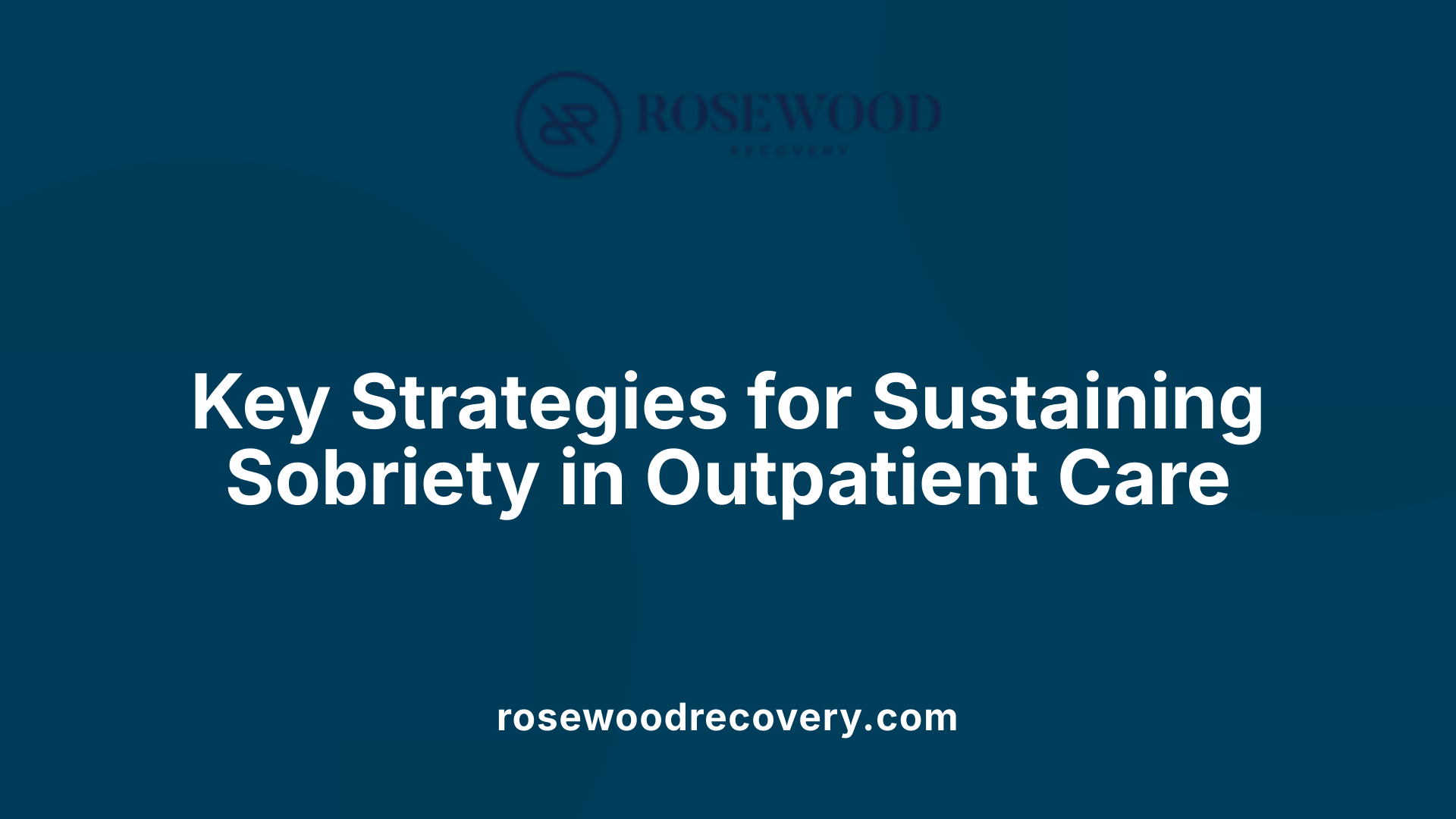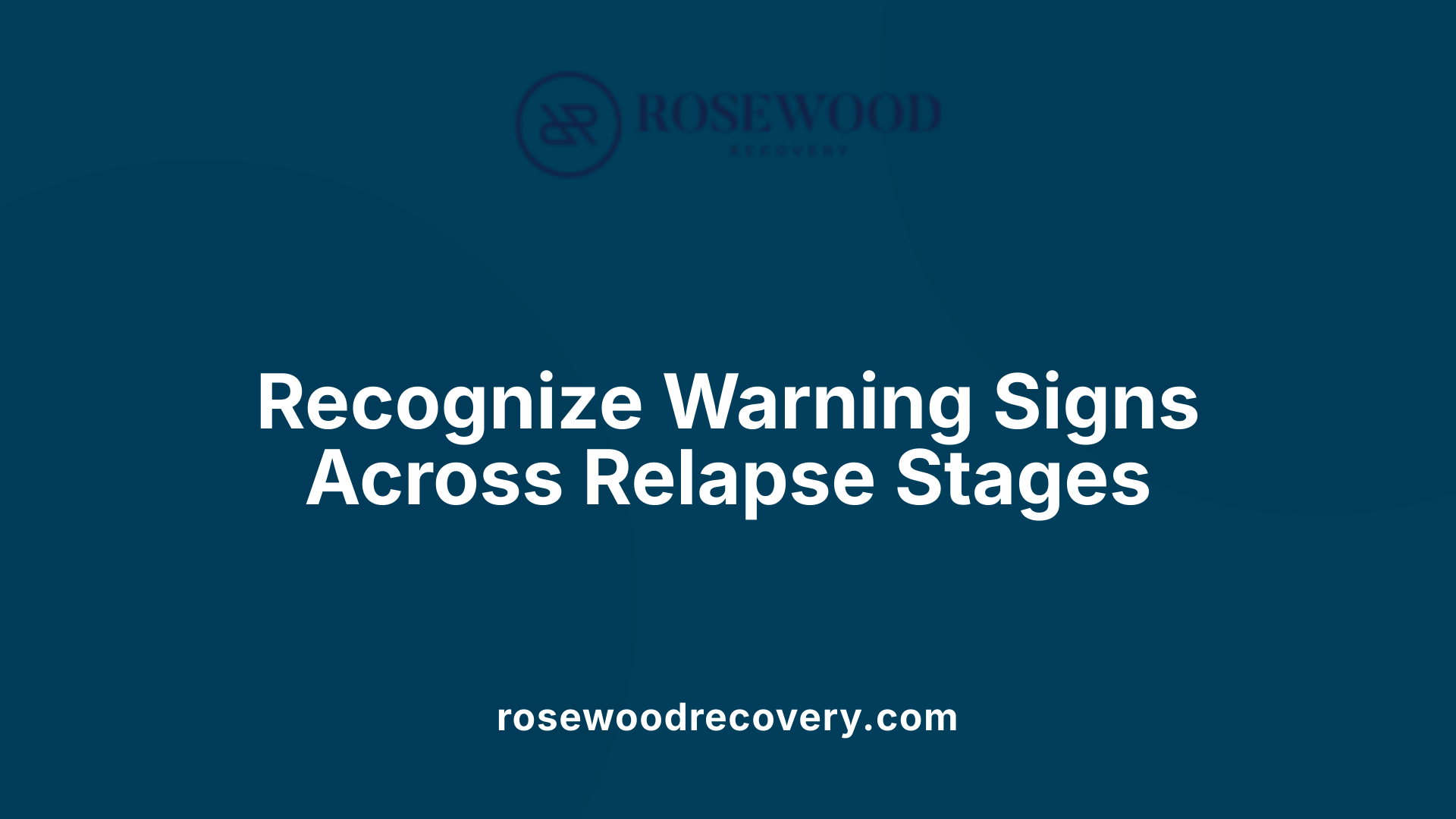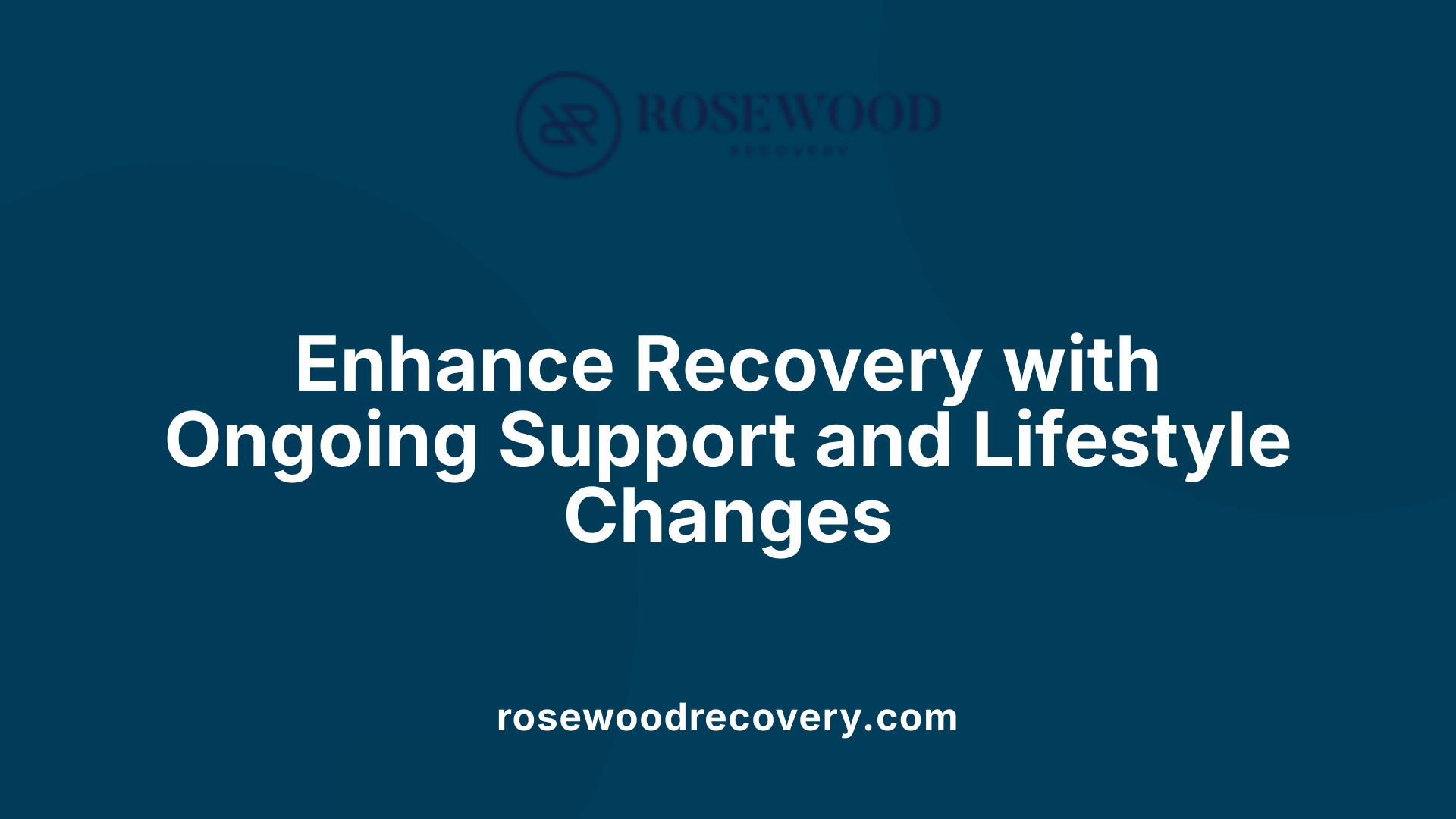Understanding the Critical Role of Relapse Education in Outpatient Addiction Treatment
Relapse is a common challenge faced by individuals in recovery from addiction, with rates ranging from 40-60%. Despite its prevalence, relapse does not signify failure but highlights the necessity for comprehensive relapse prevention education within outpatient care. By equipping patients with tailored strategies, coping mechanisms, and ongoing support, outpatient programs can significantly improve long-term recovery outcomes, reduce overdose risks, and foster resilience across physical, emotional, and social domains.
Fundamentals of Relapse Prevention in Outpatient Settings

What is relapse prevention in outpatient addiction recovery?
Relapse prevention in outpatient addiction recovery involves a comprehensive approach combining therapy, medication, ongoing monitoring, and social support to help individuals maintain sobriety. It centers on educating patients about triggers, warning signs, and coping mechanisms like mindfulness, exercise, and peer support. Therapeutic techniques such as cognitive-behavioral therapy (CBT), motivational interviewing, and community reinforcement strategies are used to identify and manage risky situations. Medications like naltrexone or disulfiram may be prescribed to reduce cravings, especially for alcohol and opioids. Routine drug testing, including urine screens and breathalyzers, helps detect early signs of relapse. Support networks, including support groups like 12-step programs, play a crucial role in maintaining accountability. Crucially, creating personalized relapse prevention plans that recognize individual triggers and outline coping strategies enhances long-term success. These plans are adaptable and are often updated as recovery progresses, fostering resilience and confidence in sustaining sobriety.
The Stages of Relapse and Early Intervention Strategies

What are the different stages of relapse: emotional, mental, physical?
Relapse is a process that unfolds in several stages: emotional, mental, and physical. The first stage, emotional relapse, occurs when emotional states such as stress, anxiety, or denial start to emerge. Signs include irritability, mood swings, and poor self-care, often setting the stage for risking substance use.
The next stage, mental relapse, involves thoughts and justifications that rationalize returning to substance use. Individuals may experience cravings, intense thoughts about using, or feelings of guilt or shame. They might fantasize about using without acting on those thoughts initially.
The final stage, physical relapse, is when the individual actively begins to use substances again. Recognizing the early signs of emotional and mental relapse can help prevent reaching this last and most critical stage.
How can early warning signs and detection help in preventing relapse?
Early detection of relapse signs is vital for timely intervention. Warning signs include emotional cues like mood swings, irritability, or feelings of hopelessness. Mental cues involve obsessive thoughts about substance use, justifications, or minimizing the consequences.
External signs can include neglect of personal responsibilities or withdrawal from support networks. Regular self-monitoring, journaling, and attending therapy sessions help individuals become more aware of these cues.
By recognizing these early signs, individuals can employ coping strategies such as mindfulness, physical activity, or seeking support. Early intervention interrupts the relapse process, reducing the likelihood of full relapse and reinforcing long-term sobriety.
Why is early intervention crucial in relapse prevention?
Early intervention can halt the progression from emotional and mental relapse to full physical relapse. The sooner individuals recognize their warning signs, the more effective their response can be.
Interventions like cognitive-behavioral strategies, support from peers or counselors, and implementing coping skills can redirect thoughts and emotions, fostering resilience.
This proactive approach not only prevents return to substance use but also builds confidence in managing recovery. It emphasizes that relapse, while common, is often avoidable if high-risk stages are identified and addressed early.
What role does ongoing education play in recognizing relapse stages?
Continued education about relapse stages and warning signs equips individuals with the knowledge to self-identify risks before they escalate. Educating clients about the emotional, mental, and physical signs of relapse enhances self-awareness.
Education also promotes understanding that relapse is a process, allowing individuals to see warning signs early. It encourages the development of personalized strategies and fosters a mindset that relapse can be managed effectively if caught early.
Regular reinforcement of relapse education through therapy, support groups, and self-monitoring activities makes it easier to recognize and respond to early cues, ultimately supporting sustained recovery.
Building Resilience Through Support and Lifestyle Modifications

What is the role of aftercare and ongoing support in relapse prevention?
Aftercare and continuous support are crucial elements in the journey of recovery from addiction. They provide the necessary resources, guidance, and accountability to help individuals sustain their sobriety over the long term. These programs often involve regular therapy sessions, support groups, and check-ins that help individuals recognize early warning signs of relapse and reinforce their coping skills.
Support networks formed through family involvement, peer groups, and community resources serve as emotional anchors during difficult times. They foster a sense of belonging and understanding, reducing feelings of isolation that can trigger relapse. Additionally, ongoing education on managing cravings, handling triggers, and stress reduction techniques like mindfulness or CBT (Cognitive Behavioral Therapy) increase resilience.
Structured aftercare plans are tailored to each person, often including relapse prevention strategies such as identifying personal triggers and developing personalized action plans. Routine monitoring through drug testing or self-assessment helps detect early signs of relapse, allowing for immediate intervention.
Overall, maintaining an active support system and continued engagement with recovery resources significantly increases the chances of long-term sobriety and helps individuals navigate the complexities of daily life post-treatment.
Empowering Recovery Through Education and Support
Relapse prevention education is a cornerstone of effective outpatient addiction treatment, equipping individuals with the knowledge, skills, and support systems necessary for long-term sobriety. By understanding relapse stages, recognizing personal triggers, and developing personalized coping strategies, patients can navigate high-risk situations with confidence. The integration of ongoing support, lifestyle adjustments, and therapeutic interventions creates a resilient foundation that sustains recovery beyond initial treatment. Ultimately, empowering individuals through continuous education and community engagement reduces relapse risks, enhances quality of life, and paves the way for enduring recovery.
References
- How Do Intensive Outpatient Programs Teach Relapse Prevention?
- Addiction Relapse Prevention - StatPearls - NCBI Bookshelf
- Importance of Relapse Prevention in Addiction Recovery
- Importance of Relapse Prevention Therapy | Addiction Recovery
- The Importance of Learning Relapse Prevention Skills
- Importance of a Relapse Program - BrightView
- Impact of Continuing Care on Recovery From Substance Use Disorder
- Reducing Relapse Risk - Whole Health Library - VA.gov
- Why is Aftercare Important for Relapse Prevention Planning?
- Why Outpatient Rehab is the Ideal Choice After an Alcohol Relapse




